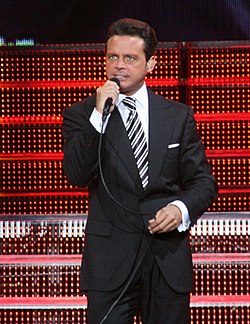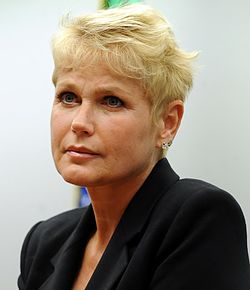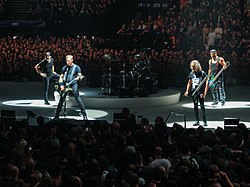
The following is an independently-determined list of best-selling albums in Chile. Some of these figures are reported by national newspapers such as El Mercurio and La Tercera , forwarded by entities that includes Feria del Disco and Musimundo (then Chile's largest retailers [1] ) or music associations like Asociación de Productores Fonográficos de Chile (APF or IFPI Chile), Chile's record-industry trade group that compiled sales from five multionational labels that make up APF (Sony, BMG, EMI, Warner and Polygram Chile). [2]
Contents
- Keys
- All-time best-selling albums
- Best-selling albums by year
- Best-selling international artists in Chile
- See also
- References
- External links
Chilean music market rose steadily in the mid-1990s, with sales of more than 7.5 million records in 1996. [3] Record sales peaked in 1997, when 9 million units were sold. [4] Since then, the music market have seen a decrease in their tallies figures. [4] Despite this, time to time the country have been included as one of the biggest 50th music markets during multiple reports by the International Federation of the Phonographic Industry (IFPI). Billboard found that the consumption of music by Chileans have been focused in international artists (Latino and non-Latinos artists), and that their local music represented only 20% share in 1996. [5] Qué Pasa explained that international artists have been the priority by record labels, [6] and at the sum of the year, yearly national best-selling albums have had an average of only 12% from their domestic acts according to La Segunda in a report from 2010. [7]
Luis Miguel's Romance is believed to be the best-selling album in Chile, with tracked sales of 500,000 units. In addition, Luis Miguel is the artist with the most entries, with at least 9 albums, followed by Los Prisioneros (3) and Maná (3), as well. Five of those Miguel's albums attained sales of over 200,000 copies sold – the most by any other act with those figures.
However, the best-selling record of Chilean music history is "El Rock del Mundial" by The Ramblers, with estimated sales of 600,000 units. [8]













